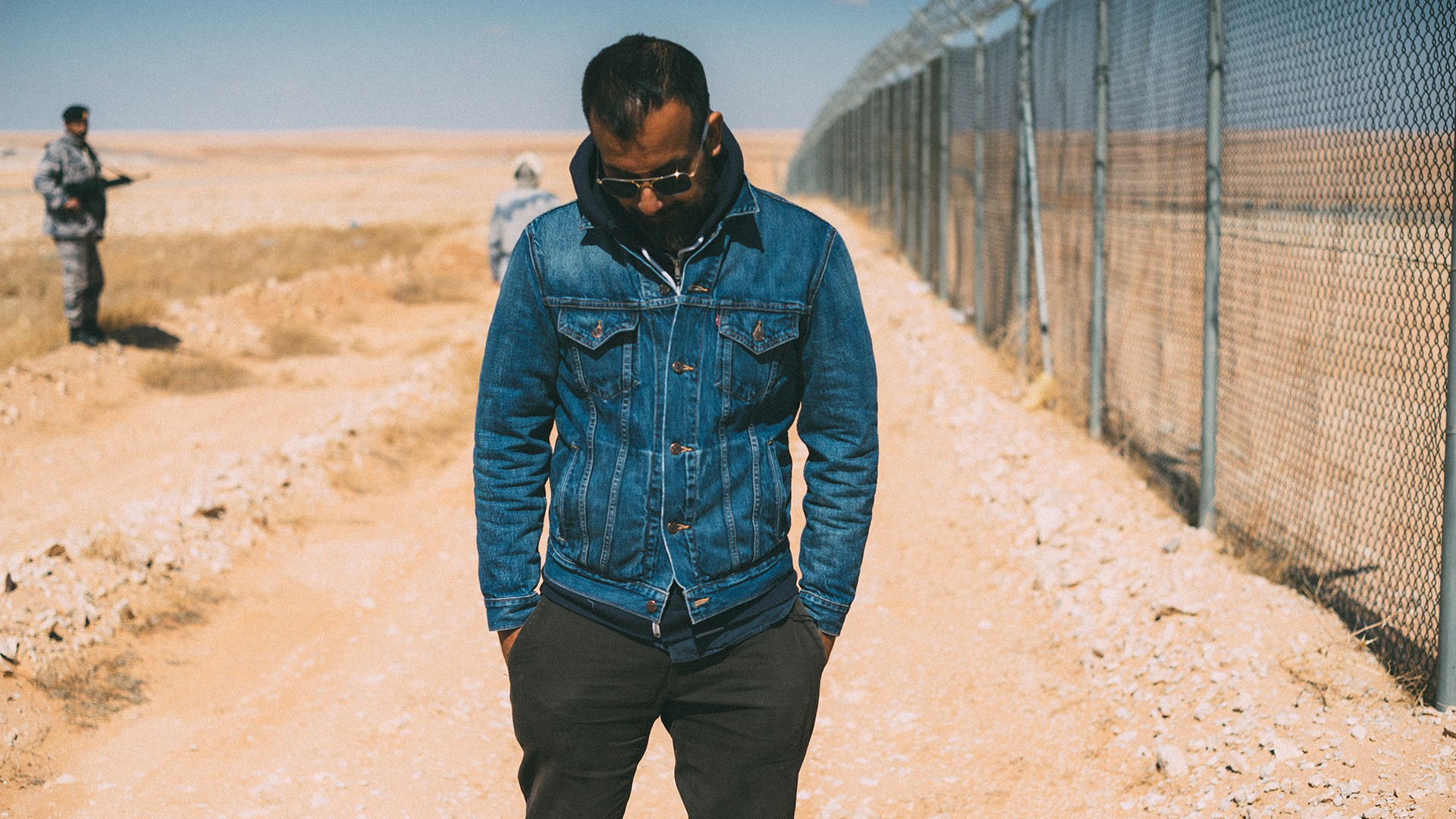In 2003, while reporting for the Washington Post on the trial of Mounir el-Motassadeq, one of the first men accused of involvement in 9/11, Souad Mekhennet attended a dinner in Hamburg, Germany. She was seated next to a witness whose husband had been a firefighter killed in the attacks. The witness, Maureen Fanning, asked Mekhennet a question that has since guided much of her work as a journalist: "Why do they hate us so much?"
Advertisement
At the time, Mekhennet had no answer. "I felt compelled to understand what had driven those men… and what drove others like them." she writes in her new memoir, I Was Told to Come Alone: My Journey Behind the Lines of Jihad, which chronicles her experiences as a journalist covering religious militants in Europe and the Middle East.Mekhennet is able to communicate across cultural and religious lines thanks to her Moroccan-Turkish identity and background as a Muslim. She also is aware that there are no easy, obvious solutions to the problem of extremism. "You can't bomb [ISIS strongholds] Raqqa or Mosul and think these so-called jihadists are going to vanish," she told me over the phone. A deeper, psychological investigation is required. "There is no way to understand what is happening in the hearts and minds of these people other than to meet with them."There is great need for an exploration of the "why" beyond the "what," especially as attacks carried out in the name of Islam, but that do not reflect its teachings, become increasingly commonplace.
Watch VICE on HBO: Enemies at the Gates and Global Jihad:
When we spoke in May, Mekhennet had just returned from Manchester, where she'd been reporting in the aftermath of the bombing that killed 23 people, including Salman Ramadan Abedi, the 22 year-old British-born attacker of Libyan descent. Mekhennet had spoken with members in his community, as well as worshippers at the mosque he frequented, in an attempt to trace his radicalization.
Watch VICE on HBO: Enemies at the Gates and Global Jihad:

When we spoke in May, Mekhennet had just returned from Manchester, where she'd been reporting in the aftermath of the bombing that killed 23 people, including Salman Ramadan Abedi, the 22 year-old British-born attacker of Libyan descent. Mekhennet had spoken with members in his community, as well as worshippers at the mosque he frequented, in an attempt to trace his radicalization.
Advertisement
Her memoir opens with the gripping story of Mekhennet's 2014 meeting with Abu Yusaf, overseer of a journalist hostage program and supervisor of the man who would become known as Jihadi John (and whose identity Mekhennet would reveal to the public). She was instructed to meet Abu Yusaf alone, at night, along the Turkish-Syrian border, despite warnings from Germany's antiterrorism unit of a plot to kidnap her and marry her off to a militant. Throughout the story of the meeting, Mekhennet emphasizes the parallels between their two backgrounds, the marginalization each had encountered ("To rise in my home country [of Germany] as a migrant, or even as the child of migrants, you have to toe the line and praise Europe's progressiveness"), as well as the different mentalities each embraced, the different paths chosen.
Mekhennet steps back from this prologue to familiarize us with her personal background as a Moroccan-Turkish Muslim growing up in Germany. As a child, she spent several years in Meknes with her parents and grandparents. "They taught me that I should look at what I have in common with other religions and with other people," Mekhennet said, "and not what's dividing us." Her religious background has given her the ability to discern when someone is using the Koran out of context, interpreting the text in a way that serves their own interests."There are moments where one sentence or wrong look can lead to the end of your life."
Advertisement
Mekhennet has stories from Iraq, Lebanon, Algeria, Jordan, and Pakistan. She takes us to Egypt and Tunisia during the Arab Spring (which she regards as one of two major turning points in the region and moments of radicalization, along with the 2003 invasion of Iraq), to Bahrain and Iran, and finally to Europe, the site of so many terror attacks in the last two years.Much of the tension in the book derives from encounters with Islamist leaders in these places, and her attempts to understand them. Among the most notable are her meetings with jihadist Abu Musab al-Zarqawi's protégés in Zarqa, Jordan; her travels to a Palestinian refugee camp in northern Lebanon to meet with Fatah al-Islam's Shaker al-Abssi; and receiving frantic phone calls from CIA torture survivor Khaled Al-Masri, who feared for his safety and begged her to meet with him (she did).Mekhennet has repeatedly put herself at great risk. "There are moments where one sentence or wrong look can lead to the end of your life," she told me.
Mekhennet emphasizes that in her meetings with these individuals, most of them did not speak about religion. They spoke about politics, and what they deemed hypocrisy and injustice, mostly from the West. "Western governments [are] always talking about the importance of human rights and religious freedoms," Abu Yusaf tells her during their meeting, "while relegating their Muslim residents to a kind of second-class citizenship.""What I learned from ISIS recruiters is that they are using words and statements made during the election campaign and taking them out of context in order to recruit people."
Advertisement
The militant leaders would talk about Iraq and weapons of mass destruction, as well as Guantanamo and secret detention centers. Many of their grievances stemmed from the anti-Islamic rhetoric used by Western leaders. (Marine Le Pen, Geert Wilders, the New Right Movement in Denmark, and Donald Trump all come to mind.) "What I learned from ISIS recruiters," Mekhennet told me, "is that they are using words and statements made during the election campaign and taking them out of context in order to recruit people."Mekhennet says that Abedi and his brother displayed signs of radicalization long before the Manchester attack. But she emphasizes that such language can lead young Muslims to feel like victims on the basis of their religion, especially when politicians make no effort to differentiate between moderate Muslims and extremists.
Photo by Ben Kilb/courtesy of Henry Holt
Yet few inside the Muslim community are making visible counterarguments to their statements. There isn't a space within the mosque for such dialogue; any discussion of extremism is banned, including within Abedi's mosque in Manchester."I have come across imams who've told me that some people within their mosques have started these discussions, but that they can't have them, because if they open the discussion, one informant may claim this mosque is radicalizing people," she said.The absence of such conversation can leave a vacuum. Young Muslims who are in the process looking for an identity, and who feel alienated by rhetoric from Western leaders in the countries where they live, can make easy targets for recruiters. "As soon as people feel they can't be American and Muslim, or that their community or society doesn't see them as fully one of them because they are Muslim—that's a very toxic mixture, given the situation at the moment. It can open the door for recruiters to say, 'This is how your country thinks of you," Mekhennet told me.
Advertisement
While Mekhennet has sought to understand extremists, she in no way excuses them nor their violent actions. Rather, she's genuinely trying to understand their perspective and explain the motivations.Mekhennet has another goal in this book, which is to defy generalizations about Muslims, and Muslim women in particular. While it's certainly true that in some Muslim countries women are mistreated, often—and unfortunately—in the name of religion, it isn't true everywhere. "I have the impression there is a certain way of looking at the Muslim community and Muslim women as homogenous," she told me. "But not every Muslim woman is the same, and not every Muslim woman is powerless."As a Muslim woman and fiction writer, I have encountered some of these generalizations, be it astonishment toward an Arab character who isn't wearing a hijab, or a request for more camels and mosques in a scene set overseas. In a way, ignoring nuance and viewing all Muslim women as homogeneous and oppressed can be its own form of oppression.Part of Mekhennet's decision to begin the book with her childhood and her family is to slay these generalizations about Muslims that often surface in Western discourse. It felt important to her, before launching into her journalist career, to explain to the reader who she is. "My upbringing tells a story that shows there are Muslims who teach their children to look at what we all have in common, Muslim families who want their kids to engage with people from other religious groups."At the same time, she's trying to send a message to the Muslim community. "Even if you feel marginalized sometimes or discriminated against, which I have been through at some point of my youth, don't go towards those who are telling you that the only way out is by giving up your place in society," she said. "You might have to endure more obstacles, but don't just go for the easy answers."Follow Zaina Arafat on Twitter.I Was Told to Come Alone: My Journey Behind the Lines of Jihad by Souad Mekhennet is available in bookstores and online from Henry Holt.
